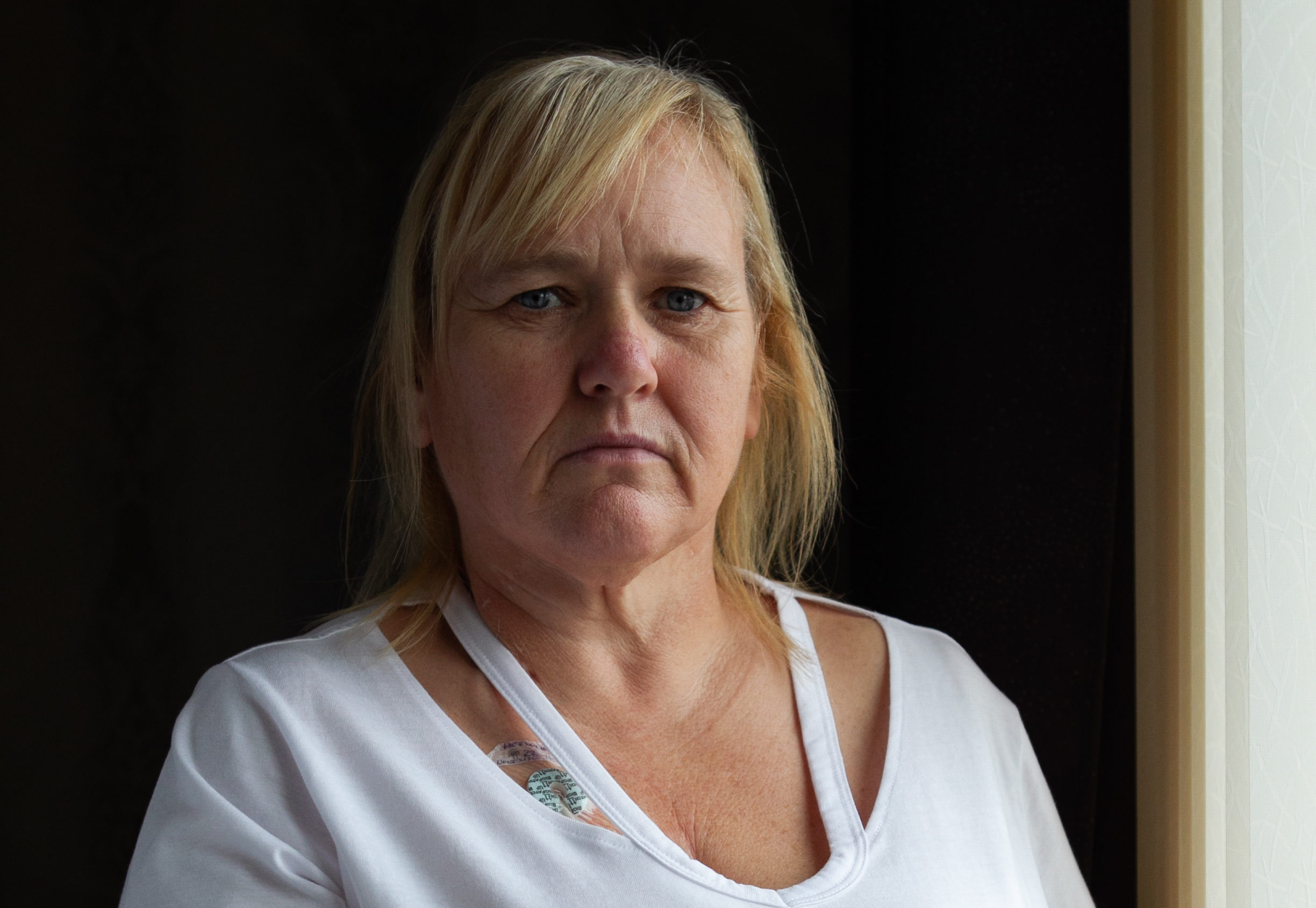
NHS officials wrote to the husband of a woman fighting a lethal cancer given to her in an organ transplant and mistakenly apologised for her death.
Yesterday, the NHS Blood and Transplant Service apologised for the letter as cancer patient Pauline Hunt voiced her disbelief.
She was given deadly cancer from a new kidney and was aghast when NHS officials wrote to her husband expressing their condolences for her death. She said: “They might have given me a death sentence – but I’m not dead yet. I’m still here, fighting to stay with my family and loved ones for as long as possible.”
The shocking mistake was made on Wednesday after Pauline’s husband Gordon, 58, had written to complain to the NHS Blood and Transplant service.
He was stunned to receive a reply from the service’s clinical governance support team, stating: “I am very sorry to hear of your wife’s death. Please can you send me your wife’s details below and I will forward on to the relevant team to look into your concerns.”
Gordon said: “Not only have they managed to give my wife a deadly cancer, they can’t even get it right that she’s still alive. After what has happened, this seems almost wilful.
“It has caused both of us more heartache and upset during what is already an extremely difficult time.”
Gordon said Pauline, 49, from Kilmarnock, broke down when she saw the message.
He said: “Pauline was in tears when I showed her what had been said and she’s not been the same since. It’s brought it all home to her, just what she is facing.”
Gordon had written to formally complain about what has happened to his wife.
The couple and the family of Tom Tyreman, who died in February in Newcastle’s Freeman Hospital two months after he was given cancer from a liver from the same donor, are calling for an inquiry.
The family of Tom, a 63-year-old from Stockton, were not told the transplant had given him cancer until months after his death.
Tests showed the cancer had originated from the female donor, a 57-year-old woman who had died from a blood-clotting illness.
Tom’s wife Judy, 60, and their two children – Jonathan 33, and Emma, 30 – decided not to tell him he was dying of cancer because he became ill very quickly.
Tom suffered from a fatty liver and had been on the waiting list for just three weeks when he got a transplant.
He and Judy had been together for 44 years and she said she will never get over how he was taken from her.
She said: “I could accept Tom dying from liver disease, from complications from the operation or from organ rejection. But I will never accept that he died from cancer from his liver donor.
“How could it have been missed that the donor had cancer?”
Medical reports reveal cancer was found in the donor’s liver and kidney.
The reports state the aggressive cancer spread quickly through Tom and Pauline.
Pauline had her donor kidney removed two days after Tom passed away and then she almost died from sepsis at Queen Elizabeth Hospital in Glasgow. Too ill for chemotherapy, she has told doctors not to tell her how long she has left to live.
The couple were married in hospital after Pauline was told she is dying from cancer.
Olive McGowan, assistant director of the Directorate of NHS Blood and Transplant, said: “We’ve apologised to Mr Hunt for this mistake and the upset that it has caused. We’ve explained to him that we are truly sorry for this mistake.
“A non-clinical member of our team misinterpreted the correspondence we received and took the words ‘deadly cancer’ to mean Mr Hunt’s wife had sadly passed away.”
The Scottish MP who had planned to raise Pauline’s case with Westminster’s Health and Social Care Select Committee will do so this week after last week’s meeting was cancelled due to the Brexit vote.
But Dr Lisa Cameron says she will ask committee chair Dr Sarah Wollaston to look how screening of organs can be improved.

Enjoy the convenience of having The Sunday Post delivered as a digital ePaper straight to your smartphone, tablet or computer.
Subscribe for only £5.49 a month and enjoy all the benefits of the printed paper as a digital replica.
Subscribe